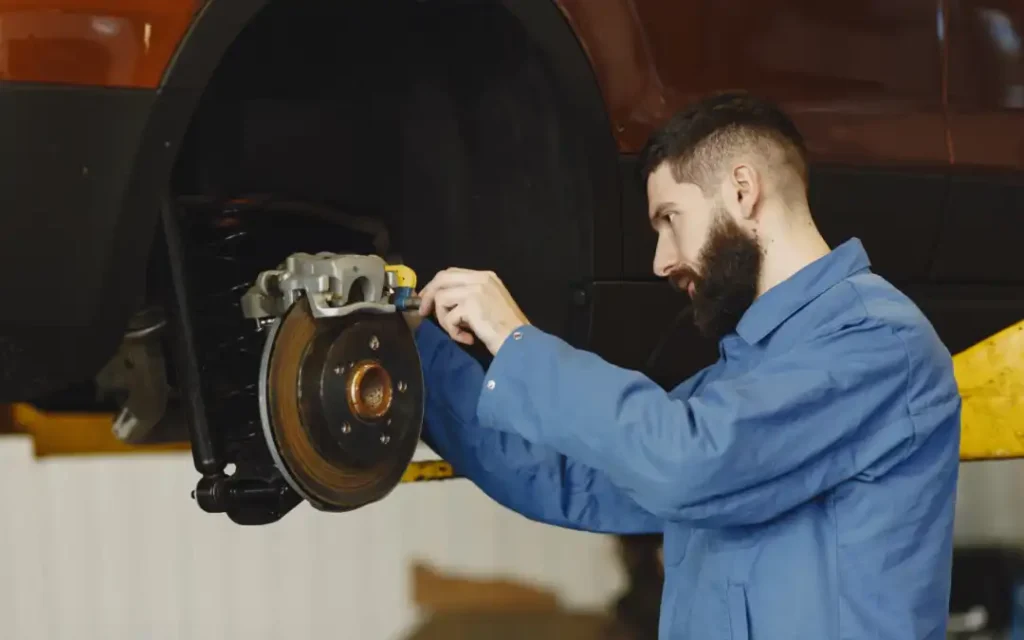When it comes to vehicle maintenance, we often prioritize things like oil changes, tire rotations, or even getting the air conditioning checked. But one essential system that should never be overlooked is your car’s braking system. The brakes are literally the difference between life and death on the road, and yet they often receive far less attention than they deserve.
In this blog, we’ll delve into why your car’s brakes deserve more attention, the warning signs to look out for, and how regular brake maintenance can keep you and your loved ones safe on the road.
1. Your Brakes Are the Most Critical Safety Feature
The primary function of your car’s brakes is simple: stop the vehicle. However, this function is vital, and it involves a complex network of parts that work together to bring your car to a halt in a timely and controlled manner. The braking system includes components like brake pads, discs, calipers, and the master cylinder, each of which plays a crucial role in ensuring your safety.
When the brakes begin to fail, even slightly, the consequences can be disastrous. From a simple fender bender to a more severe accident, faulty brakes can make it much harder to avoid dangerous situations on the road.
2. The Warning Signs You Shouldn’t Ignore
One of the most important reasons to pay attention to your brakes is that they give you plenty of warning before something goes wrong. Understanding these warning signs can help you catch brake problems early, saving you money and ensuring your safety.
Here are a few red flags to watch for:
-
Squeaking or Squealing Noises: If you hear a high-pitched squeal when you apply the brakes, it could be a sign that the brake pads are worn down and need replacing. While some noise is normal, persistent squeaking should be checked out by a professional.
-
Grinding Sounds: A grinding noise often indicates that the brake pads are completely worn down and that the metal components of the brake system are rubbing together. This can damage the rotor and lead to more expensive repairs.
-
Soft or Spongy Brake Pedal: If your brake pedal feels soft or spongy when pressed, it may be a sign of air in the brake lines, low brake fluid, or worn-out components. You may need a brake fluid flush or a full inspection of the system.
-
Pulling to One Side: If your car pulls to one side when you brake, this could indicate an issue with the brake calipers or uneven brake pad wear.
-
Vibrations or Pulsing: If you feel vibrations or pulsing in the brake pedal when you apply the brakes, it could be due to warped brake rotors. This requires immediate attention to avoid further damage.
3. The Dangers of Ignoring Brake Maintenance
It’s easy to put off brake maintenance when everything seems to be functioning properly. However, ignoring small brake problems can lead to larger, more expensive issues down the road. For example:
-
Brake Fluid Leaks: Brake fluid is essential for proper brake operation. A leak can lead to insufficient fluid levels, reducing the efficiency of the brakes.
-
Worn Brake Pads: If brake pads are not replaced in time, they can cause further damage to the rotors, leading to costly repairs.
-
Brake Overheating: Driving with worn-out brake pads or using brakes frequently without allowing them time to cool can cause overheating, which affects performance and can lead to total brake failure.
The reality is that neglecting brake maintenance can not only lead to expensive repairs but, more importantly, put you and others on the road at risk.
4. Regular Brake Inspections Are Essential
Just like any other part of your car, your brakes need regular maintenance to stay in optimal working condition. A trained mechanic can inspect the entire braking system, ensuring that the pads, rotors, fluid, and other components are functioning as they should. Brake inspections typically include:
-
Checking brake fluid levels and ensuring there are no leaks
-
Inspecting the brake pads for wear
-
Examining the brake rotors for any damage or uneven wear
-
Testing the braking system to ensure optimal performance
Even if you don’t notice any of the warning signs listed above, it’s still a good idea to have your brakes checked during your regular vehicle maintenance appointments.
5. How You Can Help Keep Your Brakes in Good Shape
While you rely on professionals to handle brake repairs and inspections, there are some things you can do to ensure your braking system stays healthy:
-
Avoid Sudden Stops: Slamming on the brakes all the time can wear down the pads and rotors more quickly. Try to anticipate traffic and brake gently.
-
Drive at a Steady Speed: Keeping your speed consistent can reduce the strain on your brakes, especially on long drives or downhill roads.
-
Check Your Brake Fluid: Regularly checking your brake fluid levels can help prevent issues related to low fluid. If the fluid looks dirty or discolored, it might need to be flushed and replaced.
6. The Bottom Line: Don’t Skimp on Brake Maintenance
Your car’s brakes are more than just an afterthought—they are a critical part of your vehicle’s safety. Regular brake inspections, timely repairs, and proper care can extend the life of your braking system and ensure you and your passengers remain safe.
If you hear strange noises, feel unusual vibrations, or experience any other signs that your brakes might not be working properly, don’t ignore them. Get them checked out by a professional automotive service center before it’s too late.
Remember, the cost of maintaining your brakes is far less than the cost of a potential accident. So, give your brakes the attention they deserve—they’re working hard to keep you safe every time you get behind the wheel.

